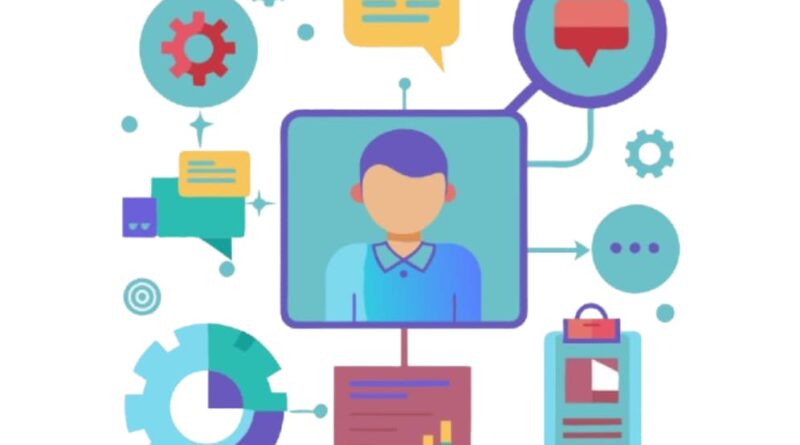How EFM Software Helps Enterprises Stay Ahead of Customer Expectations
In today’s rapidly changing business landscape, staying ahead of customer expectations is crucial for any enterprise. Consumers have more choices than ever before, and their loyalty is earned through exceptional service, tailored experiences, and proactive engagement. One of the most effective tools for achieving this is enterprise feedback management software. By leveraging real-time feedback and insights, businesses can make informed decisions, refine strategies, and respond quickly to market shifts.
This article will explore how enterprise feedback management (EFM) software helps enterprises stay ahead of customer expectations. We’ll dive into the key features of EFM, how it can be implemented effectively, and the benefits it offers for improving both customer satisfaction and operational efficiency.
Introduction to Enterprise Feedback Management Software
Enterprise Feedback Management (EFM) software is a comprehensive platform that allows businesses to collect, manage, and analyze customer feedback across multiple channels. Whether through surveys, social media, customer service interactions, or reviews, EFM software consolidates this data into a centralized system, providing actionable insights that help businesses improve customer experiences and meet evolving demands.
With enterprise feedback management software, businesses can track feedback trends, identify areas for improvement, and measure the impact of changes over time. These tools provide a holistic view of customer sentiment, which is essential for delivering personalized experiences and maintaining a competitive edge.
The Importance of Customer Expectations in Today’s Market
Customer expectations have never been higher, driven largely by digital transformation and increased competition. Today’s consumers demand:
- Personalization: Customers expect brands to know their preferences and offer tailored experiences.
- Speed and convenience: Immediate responses and fast resolution of issues are crucial for maintaining customer satisfaction.
- Proactive communication: Rather than reacting to problems, customers want companies to anticipate their needs and solve issues before they arise.
- Consistency across channels: Whether interacting online, in-store, or through a call center, customers expect a seamless, consistent experience.
Failing to meet these expectations can lead to churn, negative reviews, and ultimately, a loss of market share. However, enterprises that leverage EFM software are better positioned to stay ahead of these demands.
Key Features of Enterprise Feedback Management Software
Before diving into how EFM software helps businesses stay ahead of customer expectations, it’s important to understand the key features of an effective system. Some of the critical components of enterprise feedback management software include:
1. Multi-Channel Feedback Collection
EFM software allows businesses to gather feedback from a variety of sources, such as:
- Surveys
- Emails
- Social media
- Online reviews
- In-app feedback
- Customer service interactions
By consolidating feedback from all these channels, businesses can gain a 360-degree view of customer sentiment.
2. Real-Time Data and Analytics
With real-time analytics, EFM software enables companies to monitor feedback as it comes in. This is essential for addressing issues promptly and making data-driven decisions.
3. Automated Reporting
EFM software generates reports that highlight key trends and areas for improvement. These reports can be customized to meet the specific needs of different departments, from marketing to customer service.
4. Actionable Insights
Rather than just collecting data, EFM tools provide actionable insights that help businesses prioritize tasks and make informed decisions about customer experience improvements.
5. Scalability
Whether your company is a small business or a global enterprise, EFM software is scalable, allowing it to grow alongside your business and customer base.
How EFM Software Helps Enterprises Stay Ahead of Customer Expectations
Now that we’ve covered the basics of enterprise feedback management software, let’s look at how it helps businesses stay ahead of customer expectations.
Real-Time Feedback Collection
One of the biggest advantages of EFM software is the ability to collect and analyze feedback in real-time. Traditional feedback methods often involve long delays between collecting customer insights and acting on them. With EFM software, enterprises can gather feedback from multiple channels and respond almost immediately.
For example, if customers start reporting issues with a product, EFM software can notify the appropriate teams in real-time, allowing the company to address the issue before it escalates. This kind of rapid response is crucial in today’s fast-paced environment, where customers expect solutions quickly.
Improved Decision Making Through Data
Data-driven decision-making is key to staying competitive. EFM software allows businesses to analyze feedback data to identify trends, preferences, and areas for improvement. This enables more informed decisions, whether it’s refining a product, adjusting pricing strategies, or enhancing customer service.
Here’s a list of decisions improved by data from EFM software:
- Product Development: Understanding customer preferences and complaints can guide product design and feature enhancements.
- Marketing Strategies: Feedback helps businesses craft targeted marketing campaigns based on customer desires and pain points.
- Service Improvements: Identifying common service-related issues enables companies to optimize their customer support efforts.
Enhanced Personalization and Customer Experience
Personalization is no longer a “nice-to-have” but a necessity. With enterprise feedback management software, businesses can gather detailed insights into customer preferences and behaviors. This allows for more personalized interactions, whether through targeted email campaigns or tailored product recommendations.
Personalization enhances the overall customer experience, leading to higher satisfaction and loyalty. For example, a customer who provides feedback on a product can receive personalized follow-ups or offers that address their specific concerns or interests.
Proactive Issue Resolution
Rather than waiting for customers to reach out with problems, EFM software enables companies to be proactive. By monitoring feedback in real-time and identifying patterns, businesses can anticipate potential issues and resolve them before they become significant.
A proactive approach to issue resolution can prevent negative reviews, reduce customer churn, and improve overall brand reputation. Customers appreciate when a business takes the initiative to address concerns without them having to ask.
Centralized Feedback Management
In large enterprises, managing feedback across different departments or regions can be challenging. EFM software centralizes all feedback in one place, making it easier to track, manage, and analyze. This allows businesses to ensure consistency in their customer service efforts across all touchpoints.
For example, if a company has both online and in-store feedback channels, EFM software can consolidate the feedback into one dashboard. This makes it easier for teams to collaborate on improving the customer experience across the board.
Benefits of Implementing EFM Software
Implementing enterprise feedback management software comes with a wide range of benefits. These advantages help enterprises not only stay ahead of customer expectations but also drive long-term growth and success.
1. Increased Customer Satisfaction and Loyalty
When businesses actively listen to and address customer feedback, they create a more positive experience, which leads to higher satisfaction and loyalty.
2. Reduced Customer Churn
By identifying and resolving issues early, EFM software helps businesses retain more customers, reducing churn rates.
3. Improved Operational Efficiency
Centralized feedback management and automated reporting save time and reduce the workload on customer service and marketing teams.
4. Data-Driven Strategy Development
With comprehensive insights into customer preferences and behaviors, businesses can refine their strategies to align with customer needs.
5. Competitive Advantage
Staying ahead of customer expectations allows businesses to differentiate themselves from competitors, attracting more customers and increasing market share.
Best Practices for Implementing EFM Software
To maximize the benefits of enterprise feedback management software, it’s important to implement it correctly. Here are some best practices to keep in mind:
1. Define Clear Goals
Before implementing EFM software, define the specific goals you want to achieve. Whether it’s improving customer satisfaction, reducing churn, or enhancing product development, having clear objectives will help guide the process.
2. Train Your Team
Make sure that all team members who will be using the software understand how it works and how to interpret the data it provides. Training is essential for getting the most out of your EFM system.
3. Integrate with Existing Systems
Ensure that your EFM software integrates with other systems, such as your CRM or customer support tools, for a more seamless experience.
4. Regularly Review and Act on Feedback
Collecting feedback is just the first step. Make sure you regularly review the data, analyze trends, and act on the insights to drive meaningful change.
5. Customize Surveys and Feedback Channels
Tailor your feedback collection methods to meet the needs of your customers. For example, use shorter, targeted surveys for mobile users and more in-depth surveys for long-term customers.
What Is Enterprise Feedback Management Software?
Enterprise feedback management software is a tool that helps businesses collect, manage, and analyze customer feedback from various channels to improve customer experiences and meet evolving expectations.
How Does EFM Software Improve Customer Satisfaction?
EFM software enables real-time feedback collection and analysis, allowing businesses to address issues promptly, personalize customer interactions, and improve overall service quality, leading to higher customer satisfaction.
Can EFM Software Integrate With Other Business Systems?
Yes, most EFM software solutions can integrate with CRM systems, customer service platforms, and other business tools to provide a seamless experience and more comprehensive insights.
How Does EFM Software Help Reduce Customer Churn?
By identifying and addressing customer concerns early, EFM software allows businesses to resolve issues before they lead to customer churn, improving retention rates.




